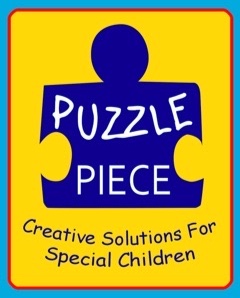We provide individualized speech-language, occupational therapy, and ABA services that treat the whole child. We believe each child is unique with their own set of strengths which we work to capitalize on.
Occupational therapy
Occupational therapy addresses the following areas of development:
Handwriting Skills
Adaptive Behavior
Prevocational skills for Teens and Adolescents
Executive Functioning Skills
Typing Skills
Sensory Processing
Visual Perception
Dysgraphia
Letter reversals
Self-Care Skills
Gross and Fine Motor Development
SPEECH-LANGUAGE PATHOLOGY
Speech-language therapy targets the following areas of development and communication:
Written Language
Reading/Spelling Skills
Augmentative and Alternative Communication (AAC)
Dyslexia
Fluency (Stuttering)
Articulation and Phonology
Auditory Processing
Social Language
Reasoning Skills
Executive Functioning Skills
Receptive and Expressive Language
Applied Behavior Analysis (ABA) SMILES Program
A unique Applied Behavioral Analysis program offering interdisciplinary collaboration with speech and occupational therapists.
About our ABA program:
Skill acquisition program focused on building social, emotional, communication, and self-help skills
Serving children ages 2-5 with an Autism diagnosis
Evidence-based treatment using a developmental-behavioral and naturalistic teaching model
1:1 therapy provided by a Registered Behavior Technician with direct supervision from a BCBA
Highest clinic standards for parent education and individualized treatment plans
In-network with Blue Cross Blue Shield
Comprehensive Behavioral Intervention for Tics (CBIT)
Our program’s goal is to empower children to manage tics or tic-like behaviors. We specialize in treating children with dual diagnoses of ASD and Tic or Tourette Disorder.
About our CBIT program:
Comprehensive Behavioral Intervention for Tics is a non-medicated treatment that involves three main components:
Training to be more aware of tics and the urge to tic.
Using competing behaviors when feeling the urge to tic.
Making changes to daily activities to reduce tics.
The program is run by Caitlyn Mullane who is an occupational therapist certified in CBIT. Caitlyn has been serving the families of children with Autism since 2018 through Puzzle Piece.
The program consists of an initial evaluation followed by 4-6 treatment sessions.
Developmental Evaluations
Our developmental evaluations are conducted by a multidisciplinary team of OT’s and SLP’s for infants and toddlers up to the age of 3.5 years. Among other evaluations, the Bayley Scales of Infant and Toddler Development | Fourth Edition is conducted. The areas evaluated include the following skills: cognitive, language, fine and gross motor, social emotional, and adaptive behavior.
Image from the Bayley-4 Product Website.
dyslexia diagnosis and treatment
Dyslexia is a “specific learning disability” that is neurological in origin. It is characterized by difficulties in reading, spelling, and writing. These difficulties typically result from a deficit in the phonological component of language that is often unexpected in relation to other cognitive abilities and the provision of effective classroom.
This is the definition recognized and accepted by the International Dyslexia Association (IDA) and the National Institute of Child Health and Human Development (NICHD).
Comprehensive evaluations will take place across two days and assesses the following areas:
Receptive and Expressive Language
Phonological Processing
Spelling
Reading Comprehension and Fluency
Written Language
ASK ABOUT OUR PROGRAM FOR LETTER REVERSALS. Is it dyslexia or does my child need an OT evaluation?
Orton-Gillingham
Our speech therapists are trained in the Orton-Gillingham approach of language and literacy intervention. Orton-Gillingham sessions are action-oriented and involve constant interaction between the therapist and student. This approach uses multiple sensory input channels reinforcing optimal learning. Orton-Gillingham increases phonological processing and the child’s confidence with reading.
Learn more about Orton-Gillingham here.
Feeding Evaluation and Treatment
Our multidisciplinary team of occupational and speech therapists conduct evaluations for and treat feeding disorders in clients of all ages. Our treatment includes the implementation of principles in the SOS Approach to Feeding. To learn more about this approach, click here.
Social and Executive Functioning Groups
Social groups are excellent opportunities for our children to practice functional and important life skills. Social groups give an opportunity to work on taking turns, creating and forming friendships, problem solving, and implementing concepts taught in Michelle Garcia Winner’s Social Thinking curriculum. This curriculum is taught to our children with social skills difficulties in 1:1 sessions before implementing them in social groups.
Executive functioning groups give our children an opportunity to work on independence and building life skills such as staying on task, working as a group, managing a schedule, and organizational skills. Our older executive functioning groups work on building prevocational skills such as taking and completing coffee orders and managing money.


